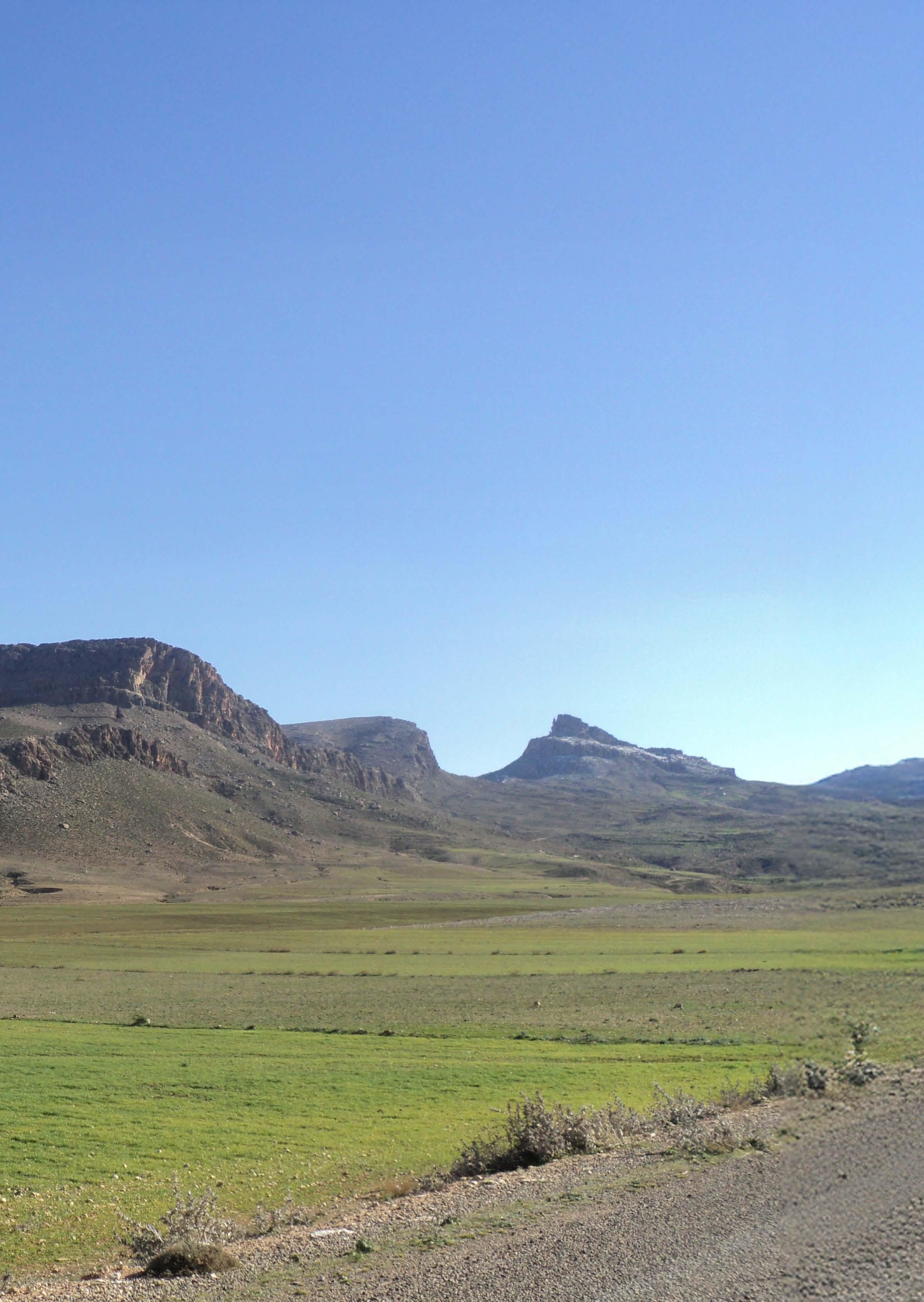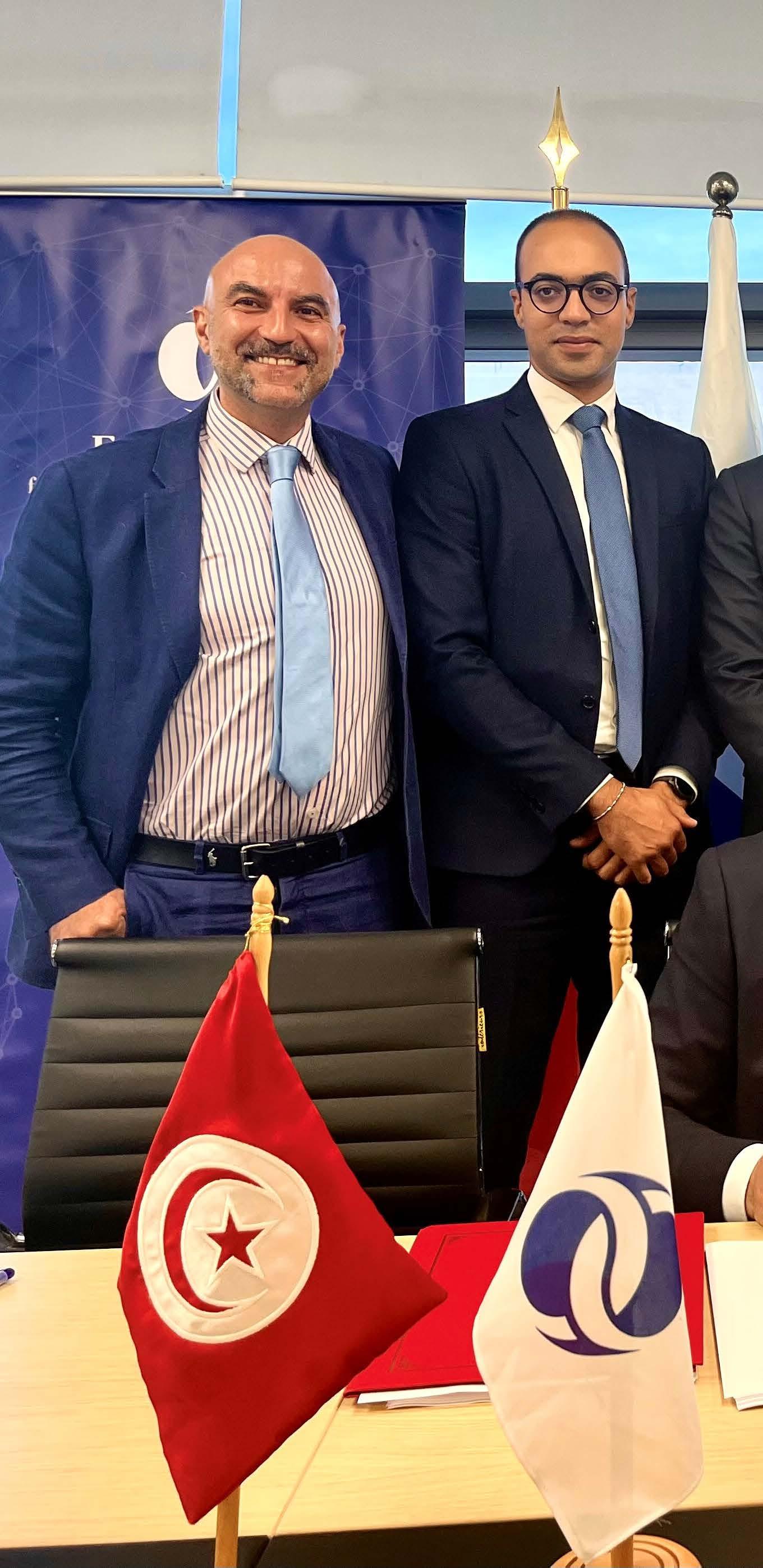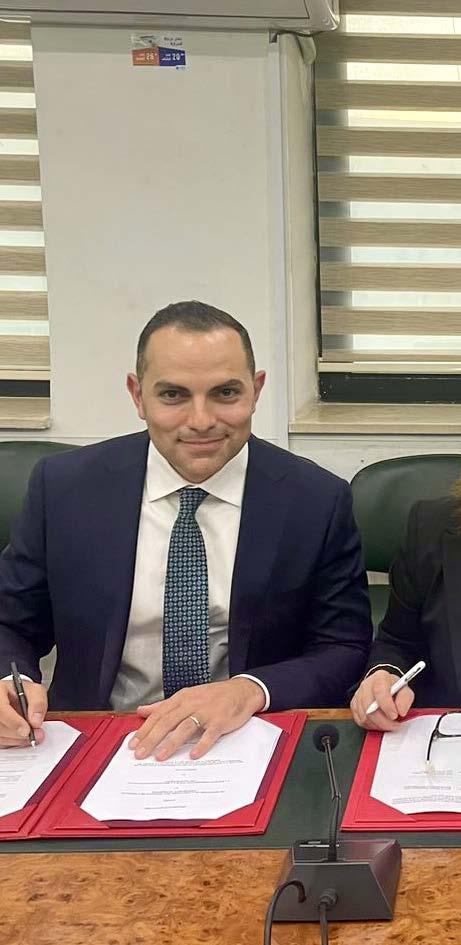

POWERING THE FUTURE OF FOOD: INSIDE PHOSCO’S GASAAT PHOSPHATE PROJECT

POWERING THE FUTURE OF FOOD

As the world’s population moves toward ten billion by 2050, global food security stands at a decisive moment. Agricultural productivity must expand to feed billions more people, yet the essential ingredients of that productivity; land, water, and fertiliser are under immense pressure. Phosphate lies at the heart of this challenge. It is the key ingredient in fertiliser production and the element that sustains global crop yields. Without phosphate, modern agriculture would not exist.
Every grain of wheat, every field of maize, and every ton of rice relies on phosphorus to grow. Nearly half of
the world’s food supply depends on phosphate-based fertilisers. The need for new, sustainable sources of phosphate is therefore not just a commercial concern, but a humanitarian one. As nations face the dual pressures of feeding growing populations and adapting to environmental constraints, the search for reliable, ethical phosphate production has become critical.
PhosCo Ltd (ASX: PHO), an Australianlisted company, has positioned itself at the forefront of this effort. Through its flagship Gasaat Phosphate Project in Tunisia, PhosCo is unlocking one of the world’s most promising phosphate
INSIDE PHOSCO’S GASAAT PHOSPHATE PROJECT


deposits, bringing together world-class geology, strong institutional partnerships, and a commitment to responsible development. Despite North Africa holding some two thirds of the world’s known phosphate deposits, PhosCo is the only listed company to hold wholly owned exploration permits in this region.
Global phosphate reserves are highly concentrated, with Morocco and China dominating supply. This concentration has exposed the fertiliser industry to geopolitical and logistical vulnerabilities. Tunisia, with its mineral wealth and strategic location between Europe and Africa’s agricultural heartlands, offers
an opportunity to diversify and stabilise supply. The Gasaat Project represents a vital step in that direction.
A large resource with significant growth potential.
Gasaat is wholly owned by PhosCo and holds a large JORC compliant resource of 146 million tonnes of rock phosphate, defined from drilling at just two out of a total of 9 prospects. The resource is set to expand shortly through the nearby SAB and KM prospects, where drilling has encountered some of the thickest and highest-grade phosphate intercepts ever reported in Tunisia. These additional
DIRECTED BY: RUPERT KAY
deposits are lower-strip and closer to the proposed plant site, and therefore expected to positively impact the project’s already impressive economics. Gasaat benefits from established infrastructure, located approximately 200 kilometres from port via sealed road and rail. PhosCo’s development plan targets 1.5 million tonnes per year of export-grade phosphate concentrate, with a mine life exceeding 46 years and first production expected in late 2027.
The company’s approach is methodical and staged. Phase one will focus on establishing a secure and consistent supply of rock phosphate for export, while phase two will expand into downstream beneficiation and in-country processing.
PhosCo’s development plans have just been accelerated by a recently announced €1 million grant from the European Bank for Reconstruction and Development, a landmark endorsement of the company’s credibility and the project’s significance. The grant follows the signing of a Memorandum of Understanding between PhosCo, the EBRD, and the Government of Tunisia, the first such agreement in the country’s mining sector. The MOU provides a clear pathway to development, with a robust framework for environmental, technical, and governance collaboration, ensuring that the project advances under internationally recognised standards.
This institutional support was underscored by PhosCo’s participation at this year’s AFSIC conference in London, where Gasaat was showcased as one of North Africa’s most strategically important mining projects. The project’s combination of geological scale, transparent governance, and local partnership captured the attention of investors and policymakers alike.
Foundation in collaboration.
PhosCo has spent years building trust with Tunisian authorities, communities, and international development partners. The project has been designed from the

PHOSCO LTD

Signing Ceremony at EBRD’s Tunis Office, attended by PhosCo Managing Director Taz Aldaoud, Executive Director Mehdi Ben Abdallah, and EBRD representatives including EBRD’s Associate Director, Anass Joundy and EBRD’s Head of Tunisia, Nodira Mansurova

PHOSCO LTD
outset to deliver benefits at every level; commercial, social, and environmental. The project has strong support from local communities who will benefit from a ten per cent project participation in the project through community companies, ensuring that development directly benefits those who live closest to it. Employment opportunities, skills training, and local supply chain development will further strengthen the project’s social impact and align it with Tunisia’s wider development agenda.
With optimisation work advancing, PhosCo is preparing for its Bankable Feasibility Study, supported by both EBRD funding and existing equity capital. The study is due to commence in early 2026, marking a decisive step toward construction readiness and production.
The timing for such a project could not be more critical. Global phosphate supply is tightening as major producers limit exports, particularly in China where phosphoric acid is not only being retained for domestic fertiliser production but also for the manufacture of electric vehicles (EV’s). Around 30% of an average Lithium Iron Phosphate (LFP) battery is made up of phosphoric acid. Yet despite the limiting of exports, demand continues to grow, driven by population expansion, changing diets, and the push for higher agricultural yields. In this environment, Gasaat offers a secure, long-life source of phosphate from a politically stable jurisdiction that sits at the crossroads of key global markets.
For investors, the appeal lies not only in the project’s scale but in its alignment with long-term demand trends. Food security is one of the most resilient investment themes of the century, and phosphate remains non-substitutable in fertiliser production. PhosCo’s disciplined approach, its commitment to transparency, and its adherence to environmental and social standards provide a compelling proposition for institutional and impact-focused investors alike.
Sustainability is central to PhosCo’s vision. The company’s development philosophy prioritises local participation, environmental protection, and governance excellence. Plans include optimising water usage, minimising waste, and developing in-country beneficiation to capture more value within Tunisia. These measures reflect PhosCo’s determination to operate in harmony with both the environment and the communities that host its operations.
Beyond environmental stewardship, PhosCo is contributing to Tunisia’s broader economic transformation. The project is part of a national strategy to diversify industry, attract foreign investment, and create skilled employment. By anchoring an integrated phosphate value chain, Gasaat has the potential to stimulate secondary industries in fertiliser production, chemicals, and logistics, positioning Tunisia as a regional hub for sustainable resource development.
A highly credentialed team with skin in the game.
PhosCo’s credibility is reinforced by the strength and experience of its team. Amongst the company’s largest shareholders is Lion Selection Group, a publicly listed mining specialist fund with a proven track record in developing successful mining projects across the globe. PhosCo’s Managing Director, Taz Aldaoud, is also backing the PhosCo’s vision. In a serious show of leadership and commitment he has invested substantially into the company over the past 12 months to now become the largest shareholder – a true show of alignment with shareholder interests.
The team’s expertise spans continents and disciplines. Mehdi Ben Abdallah, whose insights and experience in Tunisia provide vital local understanding, complements the company’s international capabilities. Meanwhile, industry veteran Sam Lancuba brings decades of phosphate expertise, having worked on phosphoric acid plants across every continent. Together, they exemplify PhosCo’s ethos: “we all have
skin in the game.” It is this combination of local knowledge, technical depth, and shareholder alignment that gives the company its distinctive edge.
As PhosCo advances towards first production, its mission extends well beyond the extraction of minerals. The company sees its role as cultivating the resources that feed the world, producing the raw materials that enable global agriculture to thrive while creating lasting social and economic value in Tunisia. Its model of shared benefit, rigorous governance, and sustainable growth represents a new standard for resource development in emerging markets.
The road ahead is clear. Following completion of the Bankable Feasibility Study, construction is expected to proceed swiftly, with mining set to commence in 2027. By that time, Gasaat will stand as one of the world’s most significant new phosphate developments, providing stability to global fertiliser markets and opportunity to local communities.
PhosCo’s journey reflects a broader truth about the modern resource sector: that long-term value depends on responsibility as much as geology. The company’s partnerships with the EBRD and the Government of Tunisia demonstrate how international cooperation can deliver progress that is both profitable and principled.
As the world looks for sustainable ways to feed a growing population, PhosCo is helping to lay the groundwork. Every tonne of phosphate produced from Gasaat will contribute to the food systems that sustain billions. In doing so, the company is not merely mining a mineral but cultivating a future, one defined by balance, resilience, and shared prosperity.
PhosCo Ltd (ASX: PHO) is advancing Tunisia’s next great phosphate project, with the EBRD, the Government of Tunisia, and local communities standing firmly behind it.
www.phosco.com.au

MOU signed by PhosCo MD Taz Aldaoud, Minister of Industry, Mines & Energy, Fatma Chiboub, and MD for the Southern and Eastern Mediterranean region at EBRD, Mark Davis.


